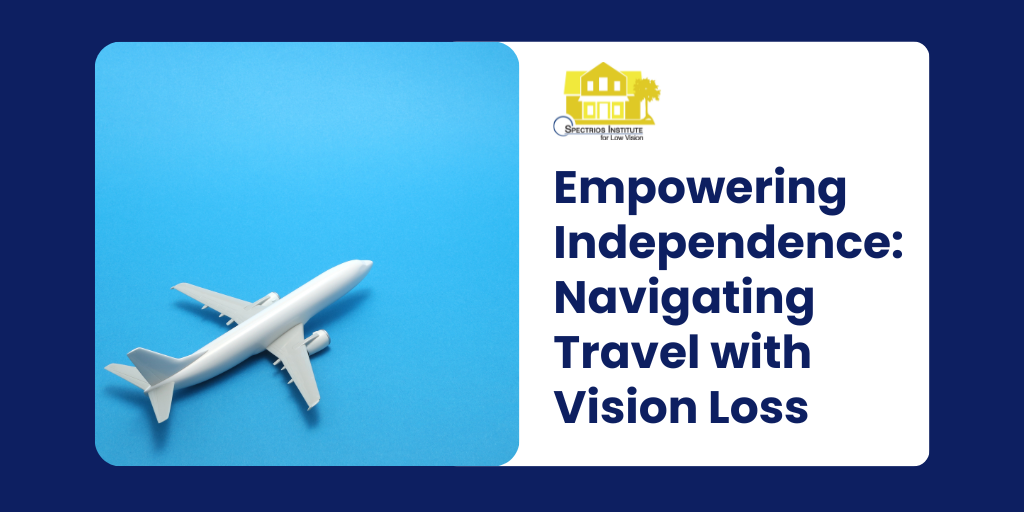
Empowering Independence: Navigating Travel with Vision Loss
I recently had the opportunity to attend the Assistive Technology Industry Association (ATIA) conference in Orlando, Florida. The event was filled with informative seminars, engaging exhibitors, and lively exchanges of ideas among attendees. Covering a wide spectrum of technology and strategies aimed at aiding individuals facing challenges related to vision, hearing, communication, learning, and mobility, the conference drew a diverse crowd ranging from special education teachers to professionals assisting seniors. I found it inspiring to meet many attendees who shared similar disabilities with those they served, making the real-life knowledge they shared extremely valuable.
My primary focus at the conference, of course, was on vision-related products and technologies. Among the highlights were updates on both existing and emerging features and applications for smartphones and tablets. The rapid evolution in this field continues to enhance the versatility and usability of these devices, catering to a broad spectrum of needs. At the tradeshow, I had the opportunity to explore several new and established devices that our access technology team is currently evaluating for potential inclusion in our technology center’s offerings. Stay tuned for further updates on this front.
Beyond the professional insights gained, this trip held personal significance for me as well. It marked my first solo journey since experiencing vision loss. Until now, I had always traveled with my family, relying on their support to navigate airports, security lines, and ground transportation. Traveling alone initially stirred some apprehension within me, particularly when my originally planned nonstop flight unexpectedly turned into a connection. However, I was up for the challenge and decided to make a call to the airline and disclose my visual impairment. I had no idea this would open the door to a wonderful experience of assistance from start to finish.
From the moment I arrived at O’Hare Airport, where an observant staff member recognized my identification cane and offered immediate aid, to the attentive support provided by airline and airport personnel throughout my journey, I felt reassured and empowered. The airline staff at the gate and on the plane made sure I found my seat during the preboarding process. When I got to Orlando, I was escorted to the ground transportation where the airport employee even waited and helped me find my Uber. The positive outcome of this experience has instilled in me a newfound appreciation for the value of seeking assistance when needed. I would not hesitate to travel by myself again.
Moving forward, I intend to proactively request special assistance when booking future trips, recognizing the difference it can make in ensuring a smooth and stress-free travel experience. It is a little humbling to use a cane the first time, but using it made the whole process even smoother. With all the other challenges I face as someone with vision loss, I am grateful to everyone that helped me along the way and will certainly take advantage of the services I received the next time I travel.
Upcoming Support Group:
For those familiar with Spectrios, our dedication to providing resources and support for individuals facing visual impairments is evident. Travel, in particular, is an area where many of our patients aspire to feel more confident and independent. If you share this aspiration, I encourage you to join us for our upcoming support group session.
On Friday, March 1st at 10:30 am CT, we will be hosting guest speaker Sue Bramhall of Mind’s Eye Travel, who will share insights into accessible travel for visually impaired individuals. Sue Bramhall launched Mind’s Eye Travel in 2008 driven by her own experience with advancing retinitis pigmentosa, which eventually compromised her ability to travel independently. Her passion for exploration led her to establish a service tailored to the needs of visually impaired travelers, offering the support of experienced sighted guides on each tour.
If you haven’t already, I encourage you to sign up for notifications regarding our support group sessions by registering your email at spectrios.org/support-group-signup. By doing so, you’ll receive Zoom Meeting log-in details directly to your inbox, ensuring you never miss an opportunity to connect, share knowledge, and empower one another. We look forward to having you there!
– Mark
Mark Chalmers is a technology instructor at Spectrios Institute for Low Vision. He specializes in helping individuals with visual impairment make the most out of their existing technology, including mobile phones, tablets, and computers. In addition, Mark demonstrates various low-vision-specific devices that can facilitate daily activities at home, school, and work. Mark is also a patient of Spectrios having been diagnosed with Stargardt’s Macular Dystrophy in his early forties, which progressively impacted his ability to read, use a computer or phone, and recognize people. With the help of Spectrios, Mark discovered various accessibility features available on his devices, purchased devices to assist with specific tasks, and learned to improvise to accommodate his visual impairment. His firsthand experience with vision loss and access technology gave him valuable insight into the power of these services. As a result, he was empowered to work at a facility for 32 years before retiring and joining the Spectrios team. Mark enjoys sharing his knowledge of adapting to vision loss and empowering others to live a fulfilling life. In his free time, he enjoys doing projects around his house and yard, as well as cycling, which he does confidently and safely with his remaining vision.
